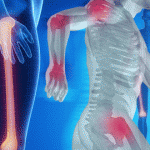NEW YORK (Reuters Health)—Exposure to probiotics in the first few weeks of life is associated with a reduced risk of islet autoimmunity, according to results from the TEDDY study.
“Early supplementation of probiotics may be important but we need more research on this,” Dr. Ulla Uusitalo from University of South Florida in Tampa told Reuters Health by email.
Gut microbiota imbalances have been associated with type 1 diabetes, but whether probiotics can improve those imbalances has not been determined.
Dr. Uusitalo and colleagues in The Environmental Determinants of Diabetes in the Young (TEDDY) study examined the association between supplemental probiotic use during the first year of life and islet autoimmunity among nearly 7,500 children at increased risk of type 1 diabetes.
The primary outcome of the study was development of persistent confirmed islet autoimmunity (IA), “defined as confirmed positive antibodies to insulin, glutamic acid decarboxylase, or insulinoma antigen 2, which were analyzed by radiobinding assays, on at least 2 consecutive study visits.”
Children with the earliest exposure to probiotics had the lowest risk of IA, while exposure to probiotics during days 91 to 365 of life was associated with the highest risk of IA.
After adjustment for other variables, exposure to probiotics during the first 27 days of life was associated with a 34% reduction in the risk of IA, compared with later exposure or no exposure to probiotics.
The strongest relationship between early probiotic exposure and IA risk was seen among infants with a HLA genotype of D3/4 (60% reduction in IA risk). This association was not seen among infants with other HLA genotypes.
Probiotic use was strongly associated with antibiotic use during the first year of life, but antibiotic use was not associated with IA, the researchers report in JAMA Pediatrics online Nov. 9.
“The trajectory of colonization is set early in life,” Dr. Uusitalo said. “After the first weeks there will still be changes in gut microbiota but it is mostly modified by various complementary foods.”
“The American Academy of Pediatrics does not recommend routine supplementation of probiotics to young infants,” Dr. Uusitalo said. “Our current study cannot support changes to this.”
“If in future there will be strong causal evidence that probiotics when given to a newborn with highest genetic risk for type 1 diabetes could prevent islet autoimmunity, we need to revisit the recommendations, at least for selected genotypes,” Dr. Uusitalo concluded. “Our current finding is very interesting and definitely needs to be studied further.”


